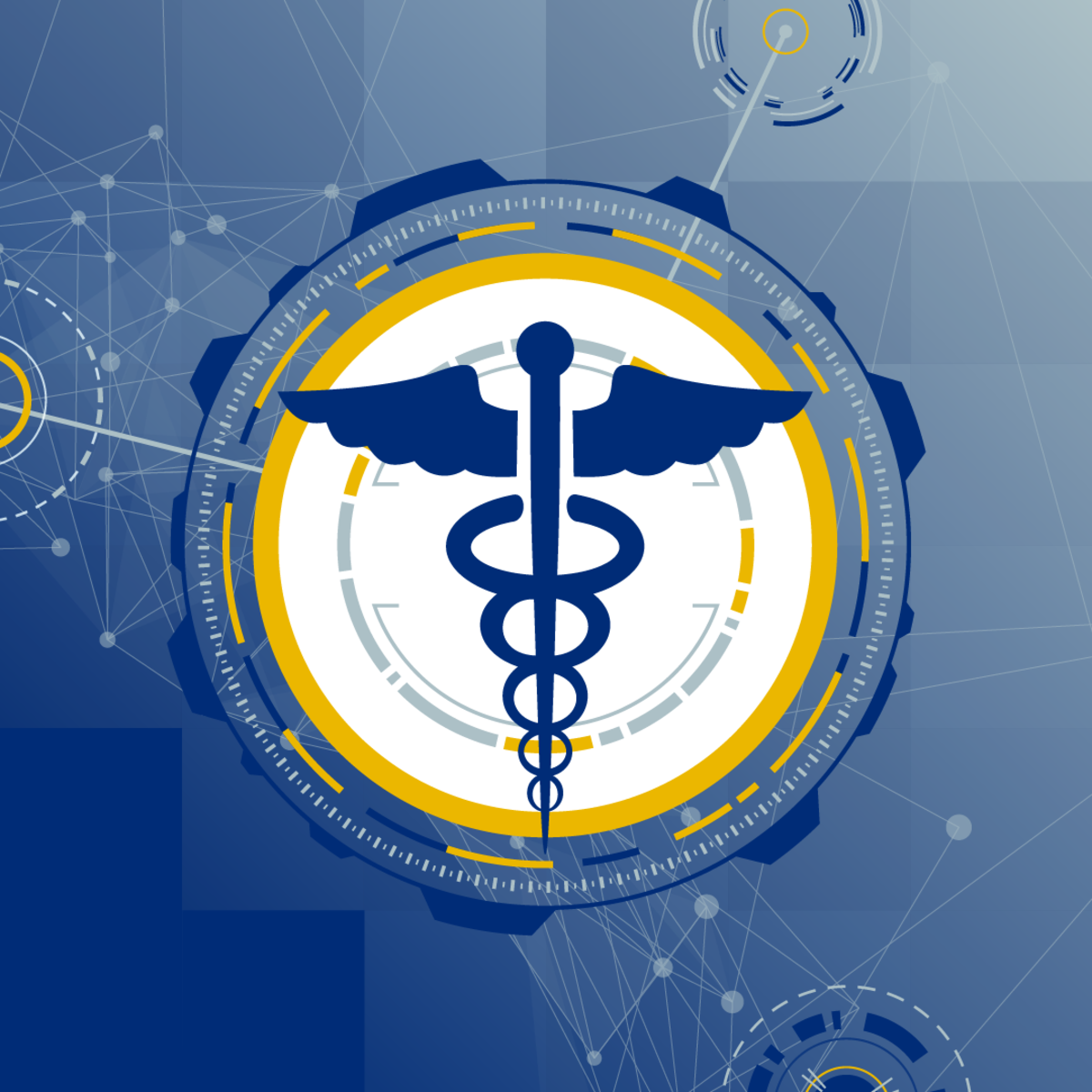Healthcare IT Manager
Navigating the World of Healthcare IT Management
A Healthcare IT Manager stands at the critical intersection of healthcare delivery and information technology. They oversee the complex digital infrastructure that supports patient care, administration, and research within healthcare organizations. This role involves managing teams, implementing new systems, ensuring data security, and making strategic technology decisions that directly impact clinical outcomes and operational efficiency.
Working as a Healthcare IT Manager can be deeply rewarding. You play a vital role in modernizing healthcare, ensuring that clinicians have the tools they need to provide effective care. The field offers constant intellectual stimulation, requiring managers to stay abreast of rapid technological advancements and evolving regulatory landscapes. It's a career where technical expertise meets a tangible human impact.
What Does a Healthcare IT Manager Do?
Core Responsibilities and Daily Tasks
The primary function of a Healthcare IT Manager is to ensure the smooth operation, security, and strategic development of information systems within a healthcare setting. This involves leading IT teams, managing budgets, and overseeing the deployment and maintenance of hardware, software, and networks. Their work ensures that electronic health records (EHRs), billing systems, and communication platforms function reliably.
Daily tasks often include troubleshooting system issues, planning upgrades or migrations, and coordinating with clinical staff to understand their technology needs. They are responsible for ensuring that IT systems support clinical workflows effectively and don't hinder patient care. This requires a blend of technical knowledge and strong communication skills to bridge the gap between IT capabilities and clinical requirements.
Strategic planning is another key aspect. Healthcare IT Managers contribute to long-term technology roadmaps, evaluate new technologies, and manage relationships with software vendors and service providers. They must balance immediate operational needs with future goals, ensuring technology investments align with the organization's mission and financial constraints.
Bridging Healthcare and Technology
This role uniquely blends knowledge from two distinct fields: healthcare and information technology. Managers must understand clinical processes, patient privacy regulations, and the specific needs of doctors, nurses, and administrators. Simultaneously, they need a strong grasp of IT infrastructure, cybersecurity, database management, and software development lifecycles.
Consider Electronic Health Record (EHR) systems. A Healthcare IT Manager doesn't just ensure the system is running; they understand how clinicians use it for patient charting, ordering tests, and prescribing medication. They work to optimize these workflows within the system, ensuring data is captured accurately and securely, facilitating better patient care and meeting regulatory requirements.
This intersection means managers often act as translators, explaining technical complexities to clinical staff and conveying clinical needs to IT professionals. Success hinges on fostering collaboration and mutual understanding between these groups, ensuring technology serves the ultimate goal of improving patient health outcomes.
For those looking to understand the fundamentals of Health IT, this introductory course provides a solid overview.
Key Industries and Employers
The most common employers for Healthcare IT Managers are hospitals and large health systems. These organizations rely heavily on complex IT infrastructure to manage patient data, coordinate care across departments, and handle billing and administration. Managers in this setting oversee large teams and significant technology budgets.
Smaller clinics, private practices, and outpatient facilities also employ Healthcare IT Managers, often with broader responsibilities due to smaller team sizes. Other employers include health insurance companies, pharmaceutical firms, government health agencies, and consulting firms specializing in healthcare technology.
Additionally, software vendors developing EHRs, telehealth platforms, and other health-tech solutions hire IT managers for product development, implementation, and customer support roles. This offers a different perspective, focusing on creating and deploying the tools used by healthcare providers.
Basic Qualifications and Entry Points
Typically, a bachelor's degree is the minimum educational requirement. Relevant fields include Health Informatics, Information Technology, Computer Science, Health Information Management, or Business Administration with an IT focus. Many managers also hold master's degrees, particularly in Health Informatics or Healthcare Administration.
Entry into the field often comes from roles like IT support specialist, systems analyst, clinical analyst, or network administrator within a healthcare setting. Experience in project management or direct clinical experience can also be valuable pathways. Certifications, while sometimes not strictly required for entry-level jobs, become increasingly important for management roles.
For those transitioning from non-healthcare IT or clinical roles, gaining specific knowledge about healthcare operations, regulations like HIPAA, and common healthcare software systems is crucial. This might involve targeted coursework, certifications, or seeking entry-level positions to build relevant experience.
This book offers a practical guide for professionals entering the health informatics field.
Roles and Responsibilities in Detail
System Implementation and Maintenance
A core function is overseeing the lifecycle of IT systems, from selection and implementation to ongoing maintenance and eventual decommissioning. This includes major systems like EHRs, Picture Archiving and Communication Systems (PACS), laboratory information systems (LIS), and billing platforms.
Implementation projects require careful planning, coordination with vendors and internal stakeholders, staff training, and managing the transition process to minimize disruption to patient care. Healthcare IT Managers lead these efforts, ensuring projects stay on budget and meet technical and clinical requirements.
Ongoing maintenance involves managing updates, patches, troubleshooting performance issues, ensuring system backups, and planning for hardware refreshes. This requires proactive monitoring and a robust support structure to address problems quickly and efficiently.
These courses delve into the operational aspects and safety considerations essential for healthcare IT staff.
Regulatory Compliance (HIPAA, GDPR)
Healthcare is a highly regulated industry, and IT systems are central to compliance efforts. Healthcare IT Managers are responsible for ensuring that technology infrastructure and practices adhere to regulations like the Health Insurance Portability and Accountability Act (HIPAA) in the U.S. and the General Data Protection Regulation (GDPR) for organizations handling data of EU residents.
This involves implementing technical safeguards (like access controls, encryption, audit logs) and administrative safeguards (like policies, procedures, training) to protect patient privacy and data security. Managers must stay current with evolving regulations and ensure systems can meet reporting and audit requirements.
Compliance failures can result in significant fines, legal action, and reputational damage. Therefore, risk assessment, security audits, and developing incident response plans are critical parts of the manager's responsibilities.
Understanding cybersecurity specific to healthcare is vital. This course covers key challenges and aspects.
Interdepartmental Collaboration Strategies
Effective healthcare IT requires constant collaboration between the IT department and various clinical and administrative units. The IT Manager facilitates this, working closely with physicians, nurses, pharmacists, lab technicians, billing specialists, and hospital administrators.
This involves understanding the unique workflows and technology needs of each department, translating these needs into technical requirements, and ensuring IT solutions enhance rather than hinder their work. Regular meetings, steering committees, and clear communication channels are essential.
Change management is a significant part of this collaboration. When implementing new systems or processes, the IT Manager must work with department leaders to manage user adoption, provide adequate training, and address concerns to ensure a smooth transition.
This book explores strategies for engaging physicians, a key stakeholder group in healthcare IT projects.
Budget Management and Vendor Relations
Healthcare IT Managers are typically responsible for developing and managing the IT department's budget. This includes forecasting expenses for hardware, software licenses, maintenance contracts, staffing, and new projects. They must justify technology investments based on clinical needs, operational efficiency, and return on investment.
Managing relationships with technology vendors is also crucial. This involves negotiating contracts, evaluating service level agreements (SLAs), holding vendors accountable for performance, and staying informed about new product offerings and industry trends.
Effective budget and vendor management ensures that the organization gets the best value for its technology spending and that IT resources are aligned with strategic priorities. This requires financial acumen alongside technical expertise.
Required Skills and Competencies
Technical Proficiency
A strong foundation in IT is essential. This includes understanding network architecture, server management, database administration (often SQL), cybersecurity principles, and cloud computing concepts. Familiarity with operating systems (Windows Server, Linux) and virtualization technologies is also common.
Specific knowledge of healthcare technologies is critical. Expertise in managing major Electronic Health Record (EHR/EMR) systems like Epic, Cerner, or Meditech is highly valued. Understanding healthcare data standards like HL7 and FHIR, as well as medical imaging standards (DICOM), is also important for ensuring interoperability.
This course offers hands-on experience with HL7 and FHIR data standards, crucial for system integration.
Troubleshooting complex technical problems under pressure is a regular part of the job. Analytical skills and a methodical approach to problem-solving are key competencies.
Project Management Skills
Much of a Healthcare IT Manager's work involves projects, from implementing new software modules to upgrading network infrastructure. Strong project management skills are therefore indispensable. This includes planning, resource allocation, risk management, timeline tracking, and budget oversight.
Familiarity with project management methodologies like PMP (Project Management Professional) or Agile frameworks is beneficial. The ability to lead project teams, manage stakeholder expectations, and communicate progress effectively is vital for successful project delivery in a complex healthcare environment.
These projects often involve significant change for users, so integrating project management with change management principles is crucial for smooth adoption and achieving the intended benefits of the technology.
Healthcare Policy and Operations Literacy
Effective Healthcare IT Managers understand the broader context in which they operate. This means having a working knowledge of healthcare delivery models, clinical workflows, medical terminology, and the administrative side of healthcare (billing, scheduling, registration).
Understanding relevant healthcare regulations and policies, particularly HIPAA, HITECH, and potentially frameworks relevant to quality reporting (like MACRA), is non-negotiable. This knowledge informs system design, security protocols, and data governance strategies.
This literacy allows the manager to communicate effectively with clinicians and administrators, understand their challenges, and ensure IT solutions genuinely support the organization's mission of patient care and operational efficiency.
This course provides foundational knowledge for IT professionals working in healthcare settings.
Leadership and Change Management
Managing an IT team requires strong leadership skills: motivating staff, delegating tasks, fostering professional development, and setting clear performance expectations. Building a collaborative and service-oriented team culture is essential.
Healthcare IT often involves significant changes to how people work. Implementing a new EHR, for example, fundamentally alters clinical workflows. Healthcare IT Managers must be adept at change management, understanding the human side of technology adoption. This includes communication, training, addressing resistance, and reinforcing new behaviors.
Negotiation and conflict resolution skills are also important, whether dealing with vendor contracts, budget constraints, or differing priorities among departments. The ability to influence stakeholders and build consensus is key to driving technology initiatives forward.
These courses explore service innovation and change management within healthcare settings.
Educational Pathways to Become a Healthcare IT Manager
Relevant Bachelor's Degrees
A bachelor's degree is the typical starting point. Degrees in Health Informatics or Health Information Management directly combine healthcare knowledge with IT principles, providing a strong foundation.
Degrees in Computer Science, Information Technology, or Management Information Systems provide the technical background, though graduates may need supplementary learning in healthcare concepts and regulations. Conversely, degrees in healthcare fields like Nursing or Healthcare Administration can be a pathway, provided the individual gains significant IT skills and experience.
Regardless of the specific major, coursework in database management, networking, systems analysis, project management, and healthcare regulations is highly beneficial. Internships or entry-level roles in healthcare settings during or after the degree are invaluable for gaining practical experience.
This comprehensive book covers key concepts in health care information systems, suitable for students and professionals.
Professional Certifications
Certifications demonstrate specialized knowledge and commitment to the field, often becoming important for career advancement. Several certifications are highly regarded in Healthcare IT.
The Certified Professional in Healthcare Information and Management Systems (CPHIMS) offered by HIMSS is a widely recognized credential covering healthcare and technology competencies. Project Management Professional (PMP) certification is valuable for those heavily involved in system implementations.
Technical certifications, such as those focused on networking (e.g., CompTIA Network+), security (e.g., CompTIA Security+, CISSP), or specific vendor systems (e.g., Epic or Cerner certifications), can also enhance a candidate's profile, particularly for more technically focused management roles.
Graduate Programs and Advanced Study
For those seeking leadership roles or deeper specialization, a master's degree can be advantageous. Master's programs in Health Informatics (MHI), Health Information Management (MHIM), or Healthcare Administration (MHA) with an IT concentration are popular choices.
These programs delve deeper into healthcare policy, data analytics, organizational leadership, and advanced IT management concepts specific to the healthcare industry. Some universities offer specialized tracks focusing on areas like clinical informatics, health data science, or cybersecurity in healthcare.
For individuals interested in research or academia, doctoral programs (PhD or DHI) in Health Informatics exist. Additionally, some unique programs combine medical degrees (MD) with informatics training, preparing clinicians for leadership roles at the intersection of medicine and technology.
Leveraging Self-Directed Learning and Online Resources
The Role of Online Courses
Online courses offer a flexible and accessible way to build foundational knowledge or acquire specialized skills in Healthcare IT. They are suitable for supplementing formal education, aiding career transitions, or enabling continuous professional development for those already in the field.
Platforms like OpenCourser aggregate courses from various providers, covering topics from basic medical terminology and HIPAA compliance to advanced subjects like health data analytics, FHIR implementation, and cybersecurity for healthcare. Learners can find courses tailored to specific software systems or general management principles.
For career changers, online courses can bridge knowledge gaps efficiently. Someone with a strong IT background might take courses on healthcare workflows and regulations, while a clinician might focus on IT fundamentals and project management. Using features like saved lists on OpenCourser can help organize a personalized learning path.
Consider exploring courses on health informatics data science or applying AI to EHR data for specialized knowledge.
Hands-on Practice and Portfolio Building
Theoretical knowledge is crucial, but practical experience is what truly solidifies skills. Look for opportunities for hands-on practice, even outside a formal job.
Some online courses incorporate virtual labs or simulations, particularly for cybersecurity or cloud computing skills relevant to healthcare. Exploring open-source EMR platforms can provide familiarity with system structures and workflows, though access and setup can be challenging.
Consider creating portfolio projects using publicly available, anonymized health datasets (ensuring strict adherence to privacy guidelines). Projects could involve analyzing health trends, visualizing data, or even designing a mock workflow for a hypothetical clinical scenario. Documenting these projects demonstrates initiative and practical skills to potential employers.
Microcredentials and Skill Specialization
Beyond full degree programs or major certifications, microcredentials and specialized online certificates can target specific competencies. These might focus on areas like telehealth implementation, healthcare data privacy, specific programming languages used in health tech (like Python for data analysis), or particular vendor systems.
These shorter, focused learning modules allow professionals to quickly upskill in emerging areas or deepen expertise relevant to their current role or desired career progression. They can be a cost-effective way to stay current in a rapidly evolving field.
The OpenCourser Learner's Guide offers tips on structuring self-learning paths and making the most of online educational resources, including how to evaluate different types of credentials.
Career Progression and Opportunities
Typical Entry-Level Roles
Direct entry into a Healthcare IT Manager role usually requires prior experience. Common starting points include technical support roles specific to healthcare environments, such as Healthcare IT Support Specialist or Help Desk Analyst.
Other pathways involve analyst roles, such as Clinical Analyst (working directly with clinicians to optimize EHR use), Systems Analyst (focusing on system configuration and maintenance), or Data Analyst (working with health data). Experience as a Network Administrator or Security Specialist within a healthcare setting also provides relevant background.
Individuals with clinical backgrounds (e.g., nurses, pharmacists) might move into informatics roles, leveraging their clinical expertise combined with learned IT skills, eventually progressing towards management.
This course focuses on training and education skills relevant for nursing informatics leaders.
Promotion Criteria and Timelines
Advancement to a Healthcare IT Manager position typically requires several years of experience (often 3-7 years) in a relevant technical or analytical role within healthcare IT. Demonstrated success in handling increasing responsibilities, leading projects or initiatives, and strong technical skills are key.
Key criteria often include proven leadership potential, excellent communication and interpersonal skills, a deep understanding of healthcare operations and regulations (like HIPAA), and strong problem-solving abilities. Certifications (like CPHIMS or PMP) and advanced degrees can significantly strengthen a candidate's profile for promotion.
Timelines vary based on the individual's performance, the organization's size and structure, and available opportunities. Showing initiative, seeking mentorship, and continuously developing both technical and soft skills can accelerate career progression.
Leadership vs. Technical Specialist Paths
Within Healthcare IT, professionals can often choose between management/leadership tracks and deep technical specialization tracks. The management path leads towards roles like Healthcare IT Manager, Director of IT, or even Chief Information Officer (CIO) / Chief Technology Officer (CTO).
Alternatively, individuals passionate about technology can pursue senior technical roles. These might include positions like Senior Systems Architect, Lead Security Engineer, Principal Data Scientist (in health), or EHR Configuration Specialist. These roles require deep expertise in specific technologies or domains but may involve less direct staff management.
Both paths offer rewarding careers and are vital to a healthcare organization's success. The choice depends on individual interests, strengths, and long-term career goals.
Transition Opportunities to C-Suite Roles
Experienced and strategic Healthcare IT Managers or Directors are well-positioned for C-suite roles. The most common path is to Chief Information Officer (CIO) or Chief Technology Officer (CTO), overseeing the entire technology strategy and operations for the healthcare organization.
Increasingly, individuals with strong health informatics backgrounds are also considered for roles like Chief Medical Information Officer (CMIO) or Chief Nursing Information Officer (CNIO), bridging clinical leadership with technology strategy. In some cases, the strategic importance of data might lead to roles like Chief Data Officer or Chief Analytics Officer.
Reaching the C-suite requires not only deep technical and healthcare knowledge but also exceptional leadership, strategic vision, financial acumen, and the ability to influence organizational direction at the highest level. An MBA or advanced degree in healthcare administration often complements technical expertise for these transitions.
Emerging Trends and Market Forces Shaping the Field
Artificial Intelligence in Clinical Decision Support
AI and machine learning are increasingly being explored and integrated into healthcare IT. AI algorithms analyze vast amounts of patient data to assist clinicians with diagnostics, treatment planning, and predicting patient outcomes. Healthcare IT Managers are involved in evaluating, implementing, and managing the infrastructure needed for these AI tools.
Challenges include ensuring data quality, addressing algorithmic bias, integrating AI insights into clinical workflows seamlessly, and navigating the ethical and regulatory considerations surrounding AI in healthcare. This trend requires IT leaders to stay informed about AI developments and their potential impact.
According to some industry analyses, AI in healthcare is a rapidly growing market, indicating increasing investment and adoption by healthcare providers. Firms like Gartner often publish research on these trends.
Interoperability Standards Development
The ability for different healthcare IT systems to seamlessly exchange and interpret data (interoperability) remains a major challenge and priority. Standards like HL7 FHIR (Fast Healthcare Interoperability Resources) are gaining traction to facilitate better data sharing between EHRs, apps, and other health platforms.
Healthcare IT Managers play a key role in adopting and implementing these standards, managing APIs (Application Programming Interfaces), and ensuring their systems can connect effectively both internally and with external partners (e.g., other hospitals, public health agencies).
This focus on interoperability is driven by regulatory mandates (like those from the Office of the National Coordinator for Health IT - ONC in the U.S.) and the clinical need for a complete view of a patient's health history, regardless of where they received care.
This course provides practical experience with data exchange standards.
Telehealth Infrastructure Demands
The rapid expansion of telehealth services requires robust, secure, and user-friendly IT infrastructure. Healthcare IT Managers are responsible for selecting, implementing, and maintaining telehealth platforms, ensuring reliable video conferencing, secure patient data transmission, and integration with EHR systems.
This includes managing network capacity to handle increased video traffic, ensuring compliance with privacy regulations during remote consultations, and providing technical support to both clinicians and patients using telehealth services. The shift towards remote patient monitoring also adds complexity to the IT infrastructure.
As telehealth becomes a standard component of healthcare delivery, IT managers must continuously evaluate and upgrade the supporting technology to meet evolving clinical needs and patient expectations.
This book discusses the digital transformation impacting healthcare, including trends like telehealth.
Cybersecurity Threats and Data Governance
Healthcare organizations are prime targets for cyberattacks due to the valuable nature of patient data. Ransomware, data breaches, and phishing attacks pose significant risks. Consequently, cybersecurity is a top priority for Healthcare IT Managers.
This involves implementing multi-layered security defenses, continuous monitoring, regular vulnerability assessments, robust incident response plans, and ongoing staff training. Strong data governance frameworks are also essential, defining policies for data access, usage, storage, and disposal to ensure both security and compliance.
The increasing volume and sensitivity of health data, coupled with sophisticated cyber threats, demand constant vigilance and investment in security technologies and expertise. Global health data sharing adds another layer of complexity regarding cross-border data protection regulations.
This course specifically addresses cybersecurity challenges within healthcare environments.
Ethical Considerations in Healthcare IT
Patient Privacy vs. Data Utility
A fundamental ethical tension exists between protecting patient privacy and using health data for beneficial purposes like research, quality improvement, and public health surveillance. Healthcare IT Managers are at the forefront of navigating this balance.
They implement technical controls (like anonymization and de-identification techniques) and access policies to safeguard privacy while enabling appropriate secondary data uses. Ensuring compliance with regulations like HIPAA is the minimum standard; ethical considerations often require going further to uphold patient trust.
Decisions about data sharing, access levels, and the use of analytics tools must carefully weigh potential benefits against privacy risks. Transparency with patients about how their data is used is also an important ethical consideration.
Algorithmic Bias in Diagnostic and Treatment Tools
As AI and machine learning tools become more integrated into clinical decision support, the risk of algorithmic bias emerges. If AI models are trained on data that reflects historical biases (e.g., disparities in care for certain demographic groups), the tools themselves can perpetuate or even amplify these inequities.
Healthcare IT Managers involved in deploying these technologies must be aware of this risk. This includes scrutinizing vendor claims, understanding the data used to train models, monitoring tool performance across different patient populations, and advocating for fairness and equity in AI applications.
Ensuring that technology promotes equitable care, rather than exacerbating disparities, is a critical ethical responsibility for leaders in healthcare IT.
Ethics in Crisis Response Systems
During public health emergencies (like pandemics) or disasters, IT systems play a crucial role in communication, resource allocation, patient tracking, and data reporting. Ethical challenges arise regarding data sharing speed versus accuracy, resource allocation algorithms, and maintaining privacy under pressure.
Healthcare IT Managers must ensure systems are resilient and can function reliably during crises. They also contribute to developing ethical guidelines for IT use in emergency scenarios, balancing public health needs with individual rights and ensuring systems don't unfairly disadvantage certain groups.
Preparation and planning, including ethical simulations and guideline development before a crisis hits, are essential components of responsible IT management in healthcare.
Addressing Global Health Infrastructure Gaps
While technologically advanced healthcare IT systems are common in developed nations, significant disparities exist globally. Many regions lack basic digital infrastructure, reliable power, and trained personnel, hindering the adoption of beneficial health technologies like EHRs or telehealth.
Ethical considerations arise regarding the equitable distribution of technology and ensuring that solutions are appropriate for low-resource settings. Healthcare IT professionals working in global health contexts must focus on sustainable, context-appropriate solutions and capacity building, rather than simply exporting complex systems designed for high-resource environments.
Promoting digital health equity requires awareness of these global gaps and contributing to efforts that build foundational IT infrastructure and digital literacy worldwide.
A Glimpse into the Daily Life
Responding to an Emergency System Outage
Imagine a critical system like the EHR suddenly goes down during peak hours. The Healthcare IT Manager immediately activates the incident response plan. They coordinate the technical team (network, server, database specialists) to diagnose the root cause, communicate updates to clinical leadership and affected departments, and oversee the restoration process, prioritizing patient safety and minimizing care disruption.
Managing a New Clinic Integration Project
A health system acquires a new outpatient clinic. The IT Manager leads the project to integrate the clinic's IT systems into the larger network. This involves assessing the existing infrastructure, planning the migration of patient data, deploying standard hardware and software, configuring network connectivity, ensuring security compliance, and training the clinic staff on the new systems, all while managing budget and timelines.
Preparing for a Regulatory Audit
An upcoming HIPAA audit is announced. The Healthcare IT Manager works with their team and the compliance department to gather required documentation, such as security risk assessments, access logs, policies and procedures, and staff training records. They review system configurations to ensure they meet security standards and prepare staff for potential interviews with auditors.
Negotiating with Stakeholders
The radiology department requests a new, expensive imaging software, while the primary care group pushes for enhanced telehealth features. With a limited budget, the IT Manager facilitates meetings with both groups, analyzes the clinical and business justifications for each request, explores potential alternatives, and negotiates a solution or phased approach that balances competing needs and aligns with the organization's overall strategic priorities.
Frequently Asked Questions about Healthcare IT Management
What is the typical salary range?
Salaries for Healthcare IT Managers vary significantly based on location, experience, education, certifications, and the size and type of employer (e.g., large hospital system vs. small clinic vs. software vendor). Geographic location plays a major role, with higher salaries generally found in major metropolitan areas with higher costs of living.
Entry-to-mid-level management roles might range broadly, while senior managers and directors in large organizations can earn substantially more. Reputable sources like the U.S. Bureau of Labor Statistics (BLS) provide data for related categories like Computer and Information Systems Managers, though healthcare-specific roles may have nuances. Salary comparison websites and industry surveys can also offer relevant benchmarks.
It's best to research salary expectations specific to your target region and level of experience using multiple sources, including job postings for similar roles.
How do I transition from pure IT or a clinical role?
Transitioning from general IT requires gaining healthcare-specific knowledge. Focus on learning about healthcare workflows, medical terminology, EHR systems, and regulations like HIPAA. Consider certifications like CPHIMS or CompTIA Healthcare IT Technician. Seek roles like IT support or analyst positions within a healthcare organization to gain experience.
Transitioning from a clinical role (e.g., nursing, pharmacy) involves building technical IT skills. Focus on IT fundamentals (networking, databases, security), project management, and systems analysis. Leverage your clinical knowledge as a major asset. Look for "clinical informatics" or "clinical analyst" roles that bridge clinical practice and IT. Online courses and IT certifications (CompTIA A+, Network+, Security+) can help build necessary technical competencies.
In both cases, networking with professionals in healthcare IT, informational interviews, and demonstrating a clear interest in the intersection of healthcare and technology are crucial.
Which certifications are most essential for advancement?
While specific requirements vary, certain certifications are highly valued for advancement in Healthcare IT management. The CPHIMS (Certified Professional in Healthcare Information and Management Systems) is often considered a gold standard as it covers both healthcare and management system domains.
PMP (Project Management Professional) is extremely valuable, given the project-centric nature of much healthcare IT work, especially implementations and upgrades. For those focusing on security management, certifications like CISSP (Certified Information Systems Security Professional) or CISM (Certified Information Security Manager) are highly regarded.
Vendor-specific certifications (e.g., Epic, Cerner) can be crucial if an organization heavily relies on a particular EHR system. While foundational certifications like CompTIA Network+ or Security+ are good starting points, the management-level certifications (CPHIMS, PMP, CISSP/CISM) typically carry more weight for senior roles.
How might Artificial Intelligence impact job security?
AI is more likely to change the nature of the Healthcare IT Manager role rather than eliminate it. AI tools can automate certain tasks (e.g., log analysis, basic troubleshooting) and provide powerful analytical capabilities, but they also introduce new complexities that require human oversight and management.
Managers will increasingly need skills in evaluating, implementing, managing, and ensuring the ethical use of AI systems. The focus may shift from routine system maintenance towards more strategic tasks like data governance for AI, managing AI vendor relationships, ensuring algorithmic fairness, and integrating AI insights into workflows.
Those who adapt and develop skills related to AI, data science, and managing complex, data-driven systems will likely find their roles evolving and remaining in high demand. The need for leadership, strategic thinking, and navigating the human elements of technology adoption will persist.
This course explores applying AI specifically to EHR data, a growing area.
How do managers balance technical debt vs. innovation?
This is a constant challenge. Technical debt refers to the implied cost of rework caused by choosing an easy (limited) solution now instead of using a better approach that would take longer. Healthcare IT managers must constantly balance maintaining legacy systems ("keeping the lights on") with investing in new technologies and innovations.
Strategies involve careful risk assessment, prioritizing updates based on security vulnerabilities or critical operational needs, and developing a clear technology roadmap. Budget allocation must strategically balance maintenance costs with funds for innovation projects aligned with organizational goals.
Effective communication with leadership is key to explaining the risks of accumulating technical debt and making the case for necessary upgrades or investments in innovation. It's often a negotiation process involving trade-offs based on resources, risk tolerance, and strategic priorities.
These courses touch upon innovation and process improvement within healthcare.
Are there cross-border employment opportunities?
Yes, opportunities exist, but they come with considerations. Health systems and technology companies operate globally, creating potential roles in different countries. However, healthcare regulations (like data privacy laws) vary significantly between countries, requiring managers to learn and adapt to local requirements.
Language proficiency and cultural understanding are often essential for international roles. Certifications may have different levels of recognition internationally. Roles in multinational corporations, global consulting firms, or international health organizations might offer more straightforward cross-border opportunities.
Remote work possibilities have also increased, potentially allowing managers to work for organizations based in other countries, although tax and legal implications need careful consideration. Understanding specific data residency laws (like GDPR) is critical when managing systems or data across borders.
The field of Healthcare IT Management is dynamic and crucial for the functioning of modern healthcare. It demands a unique blend of technical expertise, healthcare knowledge, and strong leadership skills. While challenging, it offers a rewarding career path for those passionate about leveraging technology to improve patient care and health outcomes. Continuous learning, adaptability, and a focus on both technology and people are keys to success in this vital profession. Explore the resources available on OpenCourser's Health & Medicine section to start building your knowledge base today.













